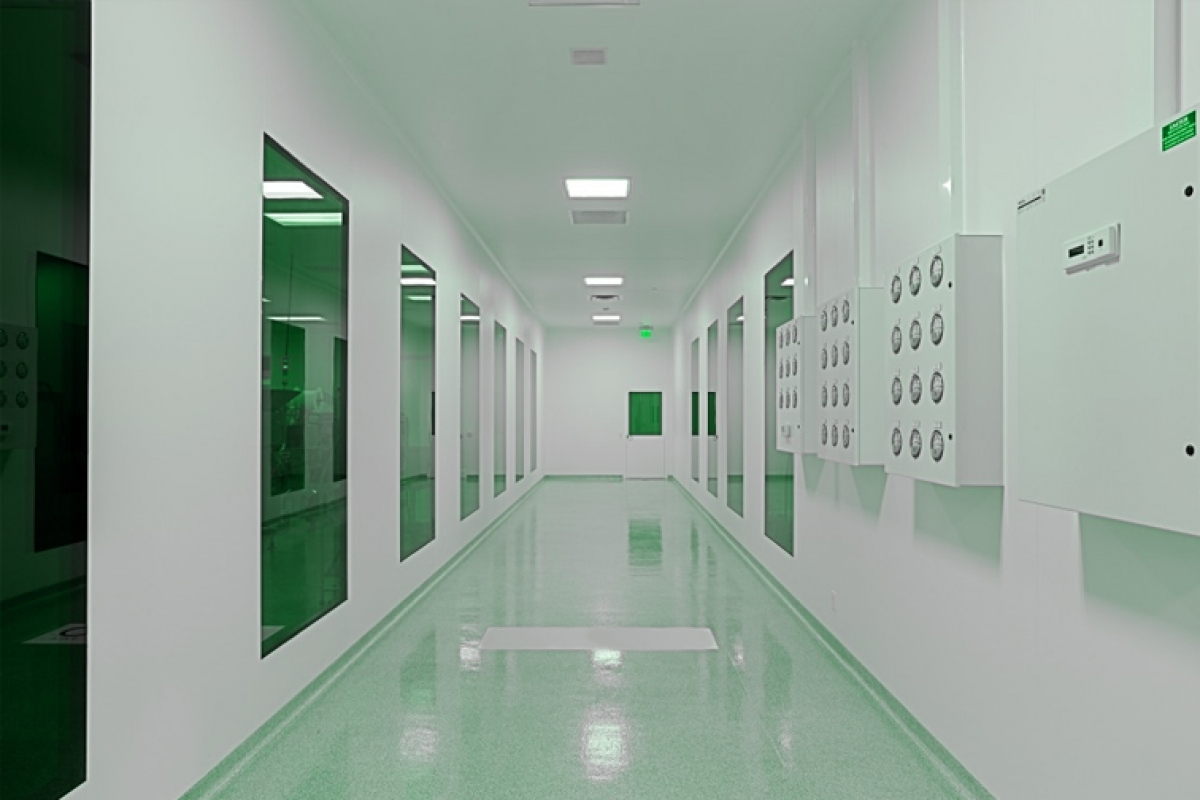
Choosing Cleanroom Flooring
When designing the perfect cleanroom, every element has to fit together. Working from head to toe, each component has a part to play in keeping your cleanroom running efficiently. When it comes to flooring, you’ll need to pick the type that best fits the work you’re doing, the materials you’re using, and adds to the cleanliness of your space.
Before choosing your cleanroom flooring material, consider what requirements your cleanroom has to meet and the type of traffic and wear it receives. Maybe you need a material that can handle harsh chemicals for cleaning or manufacturing processes. Or perhaps your industry deals with electronics whose main enemy is static electricity, and you need flooring that will dissipate static and protect your work.
There are several common flooring materials for cleanroom design, each with advantages and qualities that make them more qualified for certain applications over others. Here are some of the most common flooring types for cleanrooms:
CLEANROOM FLOORING TYPES:
RUBBER FLOORING
Rubber flooring is installed in sheets and then cold welded into place. It can stand up to heavy wear, making it one of the most durable choices of cleanroom flooring. Rubber sheet flooring is also anti-static and easy to maintain. It’s a low-cost option that is available in many colors that can match any cleanroom design. Rubber flooring is the favorite of many cleanroom designers because it is easy to install and can meet a large variety of operational requirements.
VINYL SEAMLESS FLOORING
Vinyl flooring is one of the easiest to clean because of its seamless construction. It can also be used to cover walls in a smooth transition, meaning fewer crevices for contaminants to build up. Vinyl flooring is a very economical option for low-traffic cleanrooms that don’t have to meet high weight requirements. Consistent traffic will wear out vinyl flooring quickly.
EPOXY COATING
Epoxy is a coating that is installed over a solid concrete substrate, preferably one that has no cracks and is structurally solid. Epoxy will fill in small imperfections on the floor’s surface, so some leveling is required. Epoxy’s advantage is its dense coating which has a low porosity, making it strong and durable under heavy traffic as well as easy to clean and maintain. It can be applied in a variety of color and performance options that can stand up to corrosive chemicals and dissipate static.
URETHANE SYSTEM
Polyurethane flooring exhibits a glossy or satin finish that is maintained even under heavy traffic and use. It is highly resistant to harsh chemicals and substances like gasoline, fuels, hydrocarbons, acids, and alcohols, making it an excellent cleanroom design choice for manufacturing cleanrooms. It also has light-reflecting properties that aid in illumination and can have applications that prevent skids.
OTHERS:
Another cleanroom flooring type is Vinyl Composition Tile (VCT). VCT has many seams that require consistent maintenance but is a cost-effective option that complements applications in electronics because of the electrostatic dissipative feature.
Raised flooring panels can be used to improve airflow within a cleanroom. They also increase conductivity and may be static dissipative. Raised panels can be solid panels, grated or perforated.
Depending on the unique specifications of your facility, some flooring types will be better able to accommodate your needs than others. If you’re planning the design for your new cleanroom and are still unsure which flooring type to go with, let the experts at Angstrom Technology help. Our design experts can help you make the tough choices, and ensure you get the cleanroom that’s perfect for your application.
Resources & Articles
CLIN ® "Resources" page is for individuals/companies seeking information on cleanrooms and controlled environments. Find Cleanroom News, Discussion Forums, Cleanroom Cleaning Recommendations, Cleanroom Terminology, Cleanroom Directory, and more.
Content Disclaimer
Information are contributed by/from different websites and all credit goes to its respective owners/writers/websites/companies and etc, and while we endeavour to keep the information up to date and correct, we make no representations or warranties of any kind, express or implied, about the completeness, accuracy, reliability, suitability or availability with respect to the website or the information, products, services, or related graphics contained on the website for any purpose. Any reliance you place on such information is therefore strictly at your own risk.
In no event will we be liable for any loss or damage including without limitation, indirect or consequential loss or damage, or any loss or damage whatsoever arising from loss of data or profits arising out of, or in connection with, the use of this website.
Through this website you are able to link to other websites which are not under the control of respective owners/writers/websites/companies and etc. We have no control over the nature, content and availability of those sites. The inclusion of any links does not necessarily imply a recommendation or endorse the views expressed within them.
Every effort is made to keep the website up and running smoothly. However, CLIN ® takes no responsibility for, and will not be liable for, the website being temporarily unavailable due to technical issues beyond our control.











